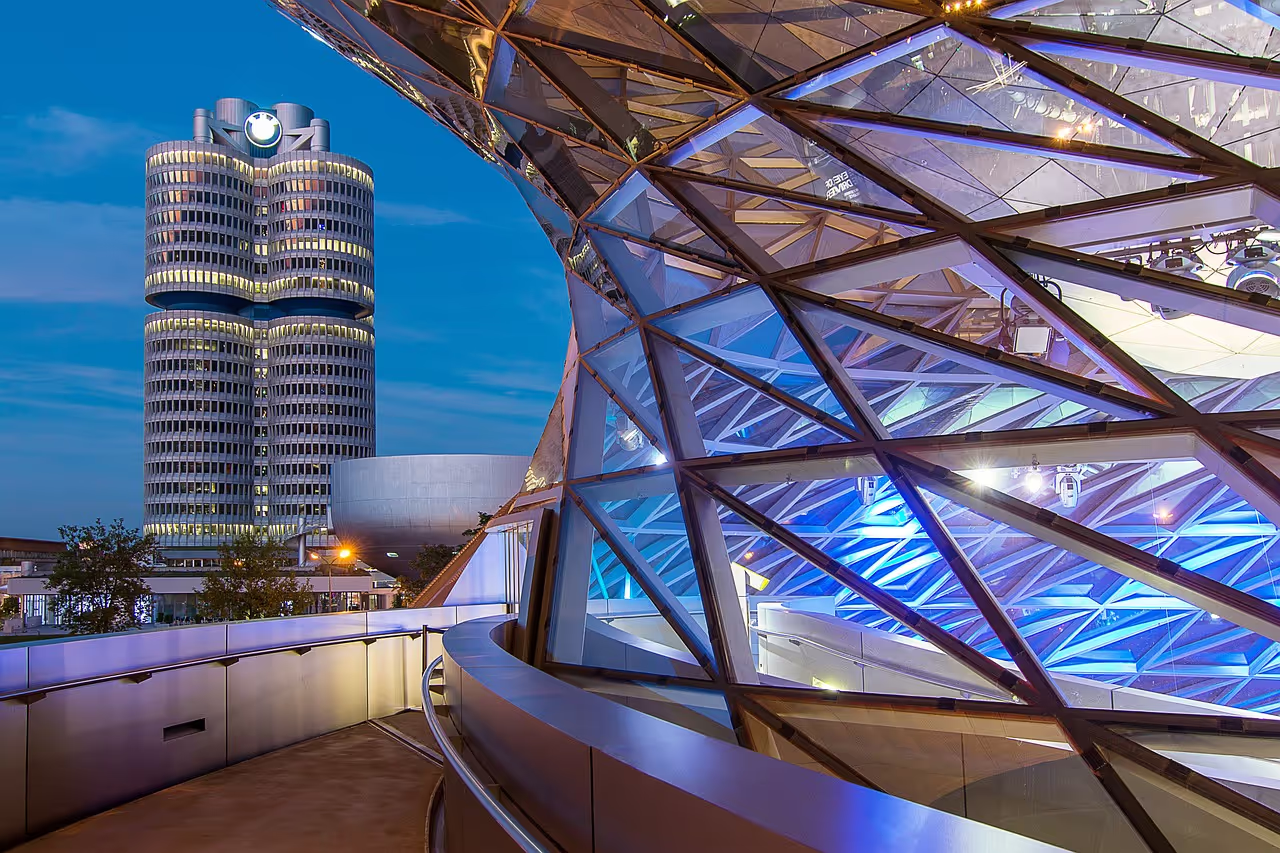Munich: magnet for top companies and start-ups

The Bavarian capital is known for its cosiness — and its attractiveness as a business location. Because Munich attracts national and international corporations with a distinctive culture of innovation, excellent infrastructure, proximity to renowned universities and, last but not least, its high quality of life. But the boom is also accompanied by growing demand on the housing market, which results in steadily rising real estate prices.
“Isar Valley” metropolitan area
The most important step in Munich's subsequent development into a high-tech region was Relocation of Siemens headquarters from Berlin to Munich shortly after the Second World War. At that time, Siemens was one of the largest employers and clients in Germany and helped to encourage Bavaria to pursue a consistent technology policy and establish itself as a location.
Today, Munich, also known as the “Isar Valley” in reference to Silicon Valley, is considered an important economic metropolis with important locational advantages in national and international competition. Munich is a leader particularly in the areas of automotive and aviation technology, the IT sector and medical technology and, as Germany's economic center, provides a future-oriented basis for innovative projects. According to the current figures, the Bavarian state capital counts Global Innovation Rankings (GII 2024) It is also one of the top 100 innovation clusters and is characterized by its high economic strength and innovative capacity.
With its variety of companies and educational institutions, Munich offers a unique basis for innovation and economic growth. The metropolis is not only home to several DAX companies and numerous major international corporations, but also known for a variety of innovative medium-sized companies and a lively start-up scene. Another advantage for the city is its large exhibition center and excellent educational landscape: Munich is home to top-class universities and numerous other universities and research institutions.
Known far beyond the city and state borders, the TUM (Technical University of Munich), which even won the title of the best university in the EU this year and attracts students from all over the world to Munich.
Popular high-tech location
The opportunity to recruit top students is one reason why more and more international corporations are settling in Munich. In addition to German companies such as Siemens and BMW, big tech in particular is drawn to the Isar Valley. microsoft has important locations here and is investing in future technologies such as artificial intelligence (AI) and electric mobility. Google is also establishing more and more offices in Munich and is planning a new development center for 2024. Amazon moved to Hallbergmoos 20 years ago and has its largest location in Germany in the Bavarian state capital with almost 3,000 employees.
Even the Facebook, WhatsApp and Instagram Group meta expanded its presence in Germany in October 2023 by opening a location in Munich on the “Campus of Ideas.” With this move, Meta is continuing its investments in Germany and is focusing on future technologies such as artificial intelligence (AI) and immersive technologies (XR).
Still relatively new in Munich is Apple: The iGroup invested around billion euros in expanding its European Center for Chip Design. Three new locations with laboratory space and research rooms have been created in Munich's Maxvorstadt. With the “Hub for Innovation,” the iPhone manufacturer is pursuing, among other things, the goal of becoming independent of external chip manufacturers.
The high-tech location of Munich is also strong in promoting young talent. For example, the young Munich start-up scene is supported by the start-up factory “UnternehmerTUM”. BMW heiress Susanne Klatten and Unternehmertum boss Helmut Schönenberger have this over 20 years ago launched as a limited liability company. Since then, the start-up company has become the largest European incubator.
This is confirmed by “Startup Monitor” 2023 from PwC: Munich is an up-and-coming startup hotspot that can compete globally with cities such as New York and London. With 12.6 start-ups per 100,000 inhabitants, Munich is also slightly ahead of Berlin.
Effects on the real estate market
Munich's popularity as a location naturally has an impact on the housing market. This is because the influx of students, specialists and founders, who choose Munich as their place of residence, increases the demand for housing significantly. According to forecasts by JLL, Munich will record the strongest population growth of 13 percent compared to the Big 7 cities in Germany by 2045. Accordingly, the Isar metropolis could have around 3.16 million inhabitants by 2041, which would correspond to an annual increase of around 10,000 people. This development underlines the attractiveness of the city as a business and living location, but also poses challenges for infrastructure and the housing market.
Since supply is far from meeting demand, rental prices and real estate values have been rising steadily for years, with a few exceptions. Rental and purchase prices have risen particularly in central districts such as Schwabing and Maxvorstadt, and the green “bacon belt” is also rapidly gaining popularity among families. The city is trying to counteract this with construction projects and infrastructure improvements, but demand remains high, meaning that Munich remains one of the most expensive places to live in Germany.
If you are a private investor and would like to take advantage of your opportunity in the fast-growing Munich real estate market, then find out more about the FINEXITY project “Isar Valley! Munich”. This short-run project (investment from 500 euros) impresses with an attractive return and collateral in the form of enforceable land charges on two first-class properties in Oberhaching and Schwabing.



